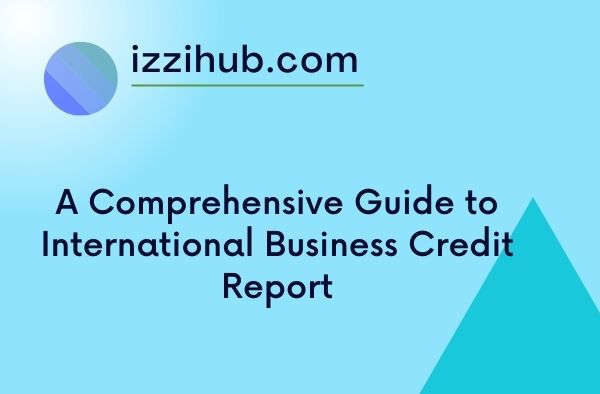A Comprehensive Guide to International Business Credit Report
With the growing importance of global trade, most companies are expanding their foothold in the international market. The flow of commerce internationally is enabling organizations to open up new avenues for business and financial success. While such trade opportunities can be lucrative, it also exposes a company to various risks. Hence, it would help to leverage comprehensive insights into your international customers and vendors to avoid potential errors and adopt a proactive approach to support your global business acquisition.
International business credit reports enable you to check the creditworthiness of the potential international suppliers and customers you intend to conduct business with. It helps you assess the company’s financial stability so that you can grow your business with confidence. Incorporating a business credit report into your decision-making process will help you maximize sales and minimize exposure to credit risk. You can significantly benefit from the real-time and accurate information present in the credit report of the target companies if you plan to conduct business anywhere in the world.
An international business credit report will comprise of several sections:
- About the business: This section is concerned with who owns and runs the business. It also details the historical aspect of the company and if it is part of a more prominent family of companies. It provides information on when the business was initiated, how many employees it encompasses, its location, and estimated sales per year.
- Accounts: The business credit report also provides details on business loans, credit accounts, and credit cards with suppliers. It provides insights on payment history and balances for each account.
- Collections: A business credit report provides information on a business’s unpaid accounts sent to a collection agency.
- Banking, insurance, and leasing: These reports may provide information on a business’s primary bank if the business is leasing equipment from another firm. It may also identify the various insurance companies that may have sold insurance to the concerned industry.
- Public records: The business credit report in the public record section identifies the bankruptcies, judgments, and Uniform Commercial Code (UCC) filings associated with the business.
- Comparative data: The concerned section determines the company’s financial health compared to other companies in the same industry that are similarly sized.
An international business credit report will help you determine the concerned global commercial entity’s creditworthiness. Creditworthiness typically encompasses 5 C’s of credit. It refers to Character, Capacity, Collateral, Capital, and Conditions. It helps you quantify and optimally decide if you should proceed with investing in a potential international business partner. A business credit report also enables you to determine the interest rates and credit limits.
- Character: When evaluating creditworthiness, the character is the most comprehensive aspect. A business credit report gives you appropriate insight into the business’ character. It helps you know how they have been handling their credit and past debts and any negligence or irresponsibility on their part in debt repayment. Moreover, the public records section in the report gives you a comprehensive understanding of the business’s character and conduct.
- Capacity: It helps you uncover the risk exposure when lending trade credit. It involves the evaluation of the commercial entity’s Debt-to-Income (DTI) Ratio, that is, the ratio of its current debt to current income. With a business credit report, you can quantify the potential partner’s capacity to repay the loan.
- Collateral: It is an asset that can act as security for the loan. It may include fixed assets or financial assets and securities.
- Capital: It indicates the amount of money your potential partner has. Capital acts as additional security if any unforeseen circumstances or setbacks take place.
- Conditions: With a business credit report, you can define the conditions for providing trade credit. Conditions encompass various specifics of any credit transaction, like the principal amount or interest rate. If the potential partner has a high credit score, you can provide them with favorable interest rates to conduct business.
An international business credit report helps you answer various pertinent questions. It helps you know how the business is linked to other companies globally. Based on the credit score in the report, that provides an aggregate underspending of how the company handles credit loans, and if they can repay on time, you can further decide if you want to link yourself to them as your potential partner. If the potential partner has a low credit report, it is a red flag to reconsider your option. They may not be creditworthy enough and may put you at the threshold of grave credit risks, which may potentially hamper how you run your business. If they cannot repay you on time, your cash flow will suffer. Hence, it will negatively affect your credit report and how your vendors and suppliers perceive you. Therein lies the importance of leveraging business credit reports if you plan to expand your business to international markets and keep the potential credit risks at bay.
To Conclude:
International business credit reports indicate the level of risk associated when financing a business in global markets. It will help you address the potential pitfalls to mitigate risk and improve profitability in your international business endeavor.



